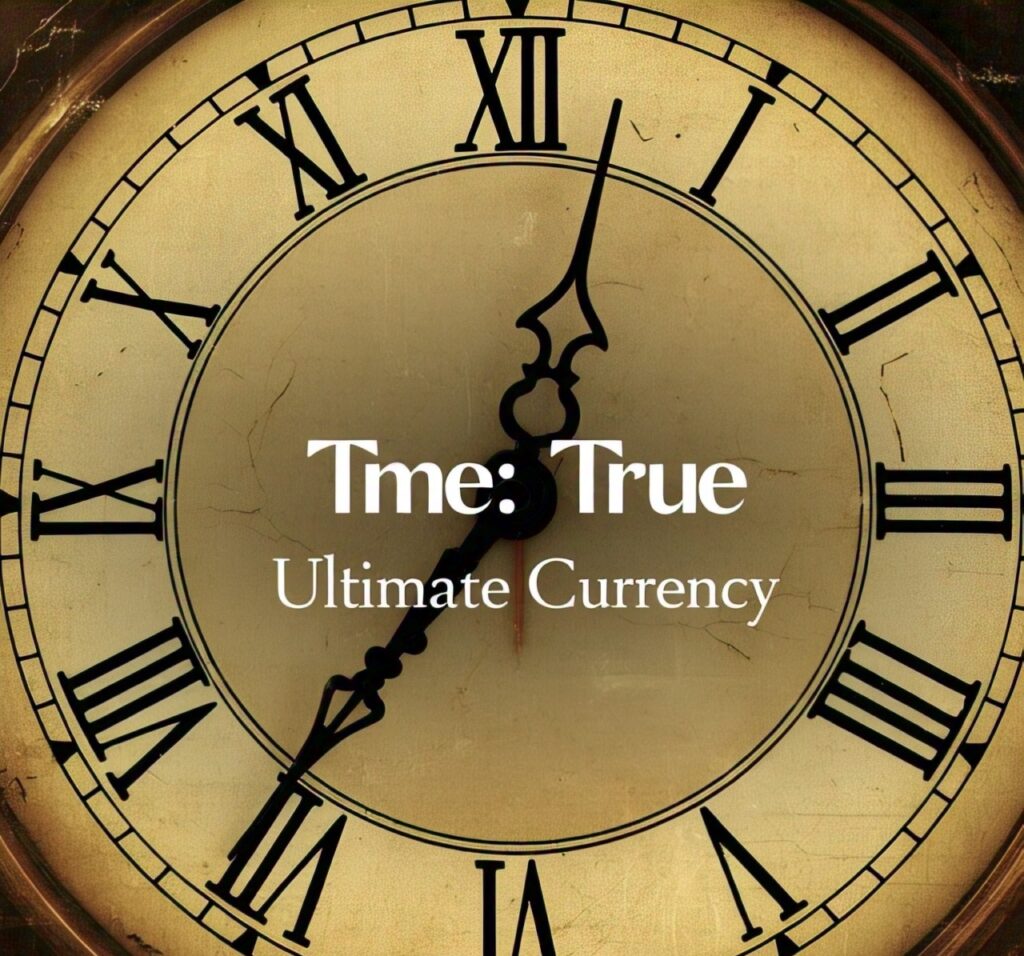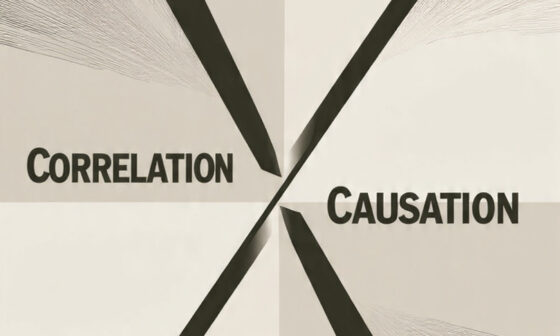Some of us are under pressure, while some of us are driven by money, while the rest of us are just working hard and smart with integrity, but to some extent we are all driven by money, status, and material gain, but in all of these pursuits one resource stands apart as truly invaluable, time. While we can earn more money, buy more possessions, and even reclaim lost opportunities, time is the one currency that can never be replenished. Every second that passes is a silent transaction, exchanged for something whether meaningful or mundane.
And unlike money, time does not discriminate; all of us, regardless of wealth, race, or rank, receive the same 24 hours in a day, and how we choose to spend those hours defines the quality, impact, and fulfillment of our lives, and this is where the true cost of time lies.
The True Cost of Time
People often talk about the “cost” of things in monetary terms, but the real cost of anything is the time we give up to attain it; this is when we work overtime to afford a luxury car or spend years building a career at the expense of relationships, what we are doing is that, we are trading time for perceived value. And sometimes when asked, most people would trade a huge chunk of their money to relive cherished moments or to gain more time with loved ones, and this is a paradox that reveals a profound truth: time is more valuable than any currency we chase.
I can bet that you have at least once heard the phrase, “time is money,” and my boss at the place I did my internship puts it is to say “time is of the essence” but that comparison barely scratches the surface. Time is not just another resource to be managed, it is the most valuable, most irreplaceable currency we possess, because unlike money or other resources, time cannot be saved, earned back, or borrowed, and once it’s gone, it’s gone for good; this further goes to suggest as a fact at least in my opinion that the true cost of time is not just about how much we lose but also very very much about what we’re trading it for, and this is precisely what I want us to talk about.
Time is a Silent Transaction
Obviously, every day, we make countless choices, some big, some small and they all come with hidden time costs. Like scrolling through social media for an hour, binge-watching another series, sitting through unnecessary meetings, or working extra hours chasing promotions, all these decisions may seem harmless in the moment, but together, they quietly consume hours, days, and even years of our lives.
So I say to you, the question should not be, “Did I spend time?” because whether we like it or not we are spending time, either doing something worth it or worthless or doing nothing at all, whichever we are spending time; so the question should be, “What did I trade that time for?” and this question when asked correctly brings us to the opportunity cost of time.
Opportunity Cost: What Could You Have Done Instead?
I don’t know if you know this but in economics, “opportunity cost” refers to what you give up when you choose one thing over another; the same principle applies to time, typically when you say yes to one thing, you’re saying no to something else often without realizing it.
For example:
- Saying yes to overtime may mean saying no to dinner with family.
- Spending three hours watching TV might mean saying no to pursuing a passion or learning a new skill.
- Staying in a toxic relationship or job might mean years lost that could’ve been spent in growth, peace, or joy.
Every choice carries a cost.
Time Poverty: The Unseen Epidemic
We talk about financial poverty, but there’s another kind of scarcity that’s just as damaging and that is the time poverty. You see many people are rich in money but bankrupt in time; their calendars are packed, their minds are cluttered, and their souls are tired. In chasing success, they unknowingly trade away the freedom to actually enjoy it, and reminds me of one of my articles.
The following transcript comes from an interview where Marley’s views regarding money are clearly stated.
Interviewer: Are you a rich man?
Marley: What do you mean, rich?
Interviewer: You have a lot of possessions?
Marley: A lot of money in the bank? – Do possessions make you rich?
Marley: I don’t know that type of richness; my richness is life.
This statement requires that the poor be considered holistically, not only as a matter of money. It takes a look at people who don’t have anything but money, who only consider and focus on their money balance.
If all you are concerned about is wealth, and more wealth is all you care about, then you’re unlikely to be truly happy, full of happiness, no joy or pleasure other than generating more wealth and filling one’s life with automobiles, boats, planes mansions, and other luxurious things.
It would be a pity to reflect on a person’s life and judge it solely by the numbers in their bank account. The most important aspects of life are not measurable precisely:
Continue Reading: Some People Are So Poor All They Have Is Money | How Can One Have Money And Still Be Poor? What Does This Really Mean?
On the flip side of this, those who intentionally protect their time even if they make less money often live more fulfilled, present, and peaceful lives.
The Emotional Cost of Wasted Time
The draining effect of wasted time isn’t just practical, it’s very much emotional, and this is when regret, guilt, anxiety, and resentment often stem from feeling like time was poorly spent or stolen by people or obligations we didn’t truly value.
And as we grow older, it’s not the missed promotions or lost money we grieve; it’s the time we didn’t spend with loved ones, the dreams we postponed, the moments we were too distracted to notice.
Intentions, expectations, hopes, and wishes are all directed toward the future, yet they also influence our thoughts and behaviour in the present. As the rate of time passing by seems to speed up, the future becomes increasingly uncertain, and what constitutes a realistic expectation of hope or desire becomes more complicated, and we can be lost and confused.
Expectations may not be fulfilled, hopes may be shattered, and dreams can become frustrated. All of these may lead to feelings of discontent that can fluctuate and evolve throughout the life cycle. In Erik Erikson’s Stages of Psychosocial Development, the eighth stage, which is the final one, is known as Integrity versus Despair.
The stage starts around the age of 65 and reaches the time of death. Psychologists, counselors, and nurses today use Erikson’s stages concepts in their care of elderly patients.
Integrity and. despair involves looking back at life and choosing to feel that the life you lived was a good one (integrity) or regretting missed decisions and opportunities (despair). To understand the difference between these two states, it is crucial to understand the meaning of what Erikson was referring to with respect to integrity and despair.
Continue Reading: Integrity vs. Despair in Psychosocial Development | Practical Psychology
The next very very very very, I can not over very but again, the next very very important question I would urge you to ask yourself is this: “How can I learn to spend time wisely?”
So please walk with me, while I attempt to answer that question for the both of us.

Spending The Currency of Time Wisely
If we take a step back and look at the grand economy of life, time is the only currency that truly matters. We all begin with an invisible bank account of moments, deposited fresh every day, 24 hours at a time; no one gets more, no one gets less. The wealthy, the poor, the young, and the old all operate with the same daily allowance of time, but what separates the fulfilled from the frustrated is not how much time they have, it’s how wisely they spend it and this is what we want to talk about.
Time Is Not Spent; It’s Invested
I know that from the start of this article I have been using the word “spending” to describe how we use up, and here I am saying time is not spent it is invested, this is NOT semantics or a game of word and in context they actually mean the same thing or at least talking about this same thing and in truth, every hour we use or you can say spend, is an investment. The return we get depends entirely on how and where we place our attention and energy.
- Time invested in learning compounds into knowledge.
- Time spent on good and respectable relationships builds emotional wealth.
- Time devoted to self-care results in better health and clarity.
- Time used for reflection and rest restores and renews the mind.
On the other hand, time wasted on unfulfilling obligations, toxic habits, or distractions can feel like money thrown into a black hole; I don’t know what that means but it means wasted, gone, with nothing to show for it.
The Myth of “Too Busy”
I can tell you most of us are not actually too busy, we’re just misaligned. We say we don’t have time for reading, rest, to learn a skill, or that passion project, but we somehow find hours for social media, binge-watching, or worry. The truth is that we make time for what we value, consciously or not.
If time is a currency, then every action is a receipt and where you spend your hours reveals your true priorities more than your words ever could.
Focus: The Multiplier of Time
Not all time is used up equally, you might not get it the first time and ask what am I trying to say here? I am saying the quality that is put into an hour can sometimes if not most times NOT be equal to the quality you put into another hour, and what is the difference? Focus, your level of focus. One focused hour can be more productive and impactful than three distracted ones. In today’s world of constant pings, notifications, and noise, the ability to protect your attention is a superpower and so, eliminating distractions is not just about productivity, it’s also very very much about honoring your time.
To spend your time wisely:
- Create boundaries.
- Say no without guilt.
- Disconnect to reconnect with yourself and others.
There’s power in the simple act of saying no; however, for many of us, it’s the most difficult word to use.
It’s a fact that you will never achieve your goals if you have too many obligations. You over-stretch yourself, and you won’t achieve anything, or at the very least in a timely manner, if you say “Yes” to every request. This is why being able to say “No” is an effective way to increase productivity.
The biggest hurdle in saying “No” is that we fear we’ll be perceived as negative or ineffective. When we say “Yes,” it is believed to be brave and kind.
The simple decision to say “No” is powerful and is often an act of bravery.
To be productive, reduce stress, and avoid wasting time, it is essential to master the act of saying No, an art that many struggle with.
Continue Reading: The Power Of Saying “No” For A Less Stressful Life
And this brings us to quality over quantity.
Quality Over Quantity
Spending time wisely isn’t just about doing more but it’s about doing what matters most. A short, meaningful conversation with a loved one is worth far more than hours of distracted coexistence obviously. An hour fully engaged in a creative project can energize you more than a whole day of passive consumption, again, obviously.
And so I urge you or like the apostle Paul will say, I beseech to choose depth over duration, quality over quantity. It’s not about how long something takes; it’s about how deeply it connects, fulfills, or grows you.
And this reminds me of an episode from one of my favorite Podcast, Daily Stoic: Do Less, Better, and live proactively and intentionally.
Here’s the simple recipe for improvement and for happiness. It comes from Marcus Aurelius and the fact that it came from such a busy man with so many obligations and responsibilities should not be forgotten.
“If you seek tranquillity,” he said, “do less.”
And then he follows the note to himself with some clarification. Not nothing, less. Do only what’s essential. “Which brings a double satisfaction,” he writes “to do less, better.”
Follow this advice today and everyday. So much of what we think we must do, so much of what we end up doing is not essential. We do it out of habit. We do it out of guilt. We do it out of laziness or we do it out of greedy ambition. And then we wonder why our performance suffers. We wonder why our heart isn’t really in it.
Of course it isn’t. We know deep down there’s no point.
But if we could do less inessential stuff, we’d be able to better do what is essential. We’d also get a taste of that tranquillity that Marcus was talking about. A double satisfaction.
The Daily Stoic: Do Less, Better
The Power of Intentional Living
Living with intention means approaching your days like a skilled investor, asking:
- What will give me the best return on my time?
- What aligns with my values and vision?
- What drains me, and what fuels me?
When you start making time decisions based on meaning, not just momentum, life shifts. You begin to feel less rushed, more present, and more in control not of time itself, but of how you experience it.
The Legacy of Time Well Spent
At the end of our lives, it won’t be our bank accounts, resumes, or possessions that define us. It will be the impact of how we spent our time:
- The people we showed up for.
- The love we gave and received.
- The moments we were truly alive (I know this can be objectively debated by some, but I hope you get what I mean).
That is the true legacy of wise time spending.
Read Also: Don’t Sell Out, Don’t Be Cheap
Read Also: The Road to Hell Is Paved with Good Intentions – Means What Exactly?
Read Also: The Man In The Arena: Daring Greatly
Conclusion
You are given the same 86,400 seconds today as anyone else, so the question is not how much time you have, but what you’ll do with it. Treat it like the precious currency it is, invest it with care, spend it on what matters and remember: you can always make more money but you can never make more time.
And so to treat time as the ultimate currency, we must:
- Identify Priorities – Ask: What truly matters to me? Align your time with your values.
- Set Boundaries – Learn to say no. Every yes is a withdrawal from your time bank.
- Eliminate Time Debt – Let go of regret over wasted time. Focus on spending today better.
- Invest Wisely – Spend time where it grows: in people, passions, purpose, and peace.
- Practice Gratitude – Recognize the gift of now. Presence turns time into treasure.
Because in the end, life isn’t measured by the money we make, the titles we earn, or the things we own. It’s measured by how we spend the minutes and 86,400 seconds that make up our days. And so I am reminded that: The richest lives are lived not in the accumulation of wealth, but in the meaningful use of time and as the clock ticks, I want you to remember again, again and again that time is not just passing, it’s being spent, so spend it wisely, for it is the most precious currency you will ever hold.






2 comments
Indeed a person who can manage his or her time wisely and productively is very much the richest person ever.
And I pretty much get what Marcus said because sometime last I felt that double satisfaction feeling which was our of this world
Did the essentials of something I was working on and I did feel fulfilled.
Working on making that a proper habit in investing my time wisely moving forward
Let’s learn to make rich investments with our time, like I always tell me friends, this one way to move up to greater heights.
Thank for your contribution.